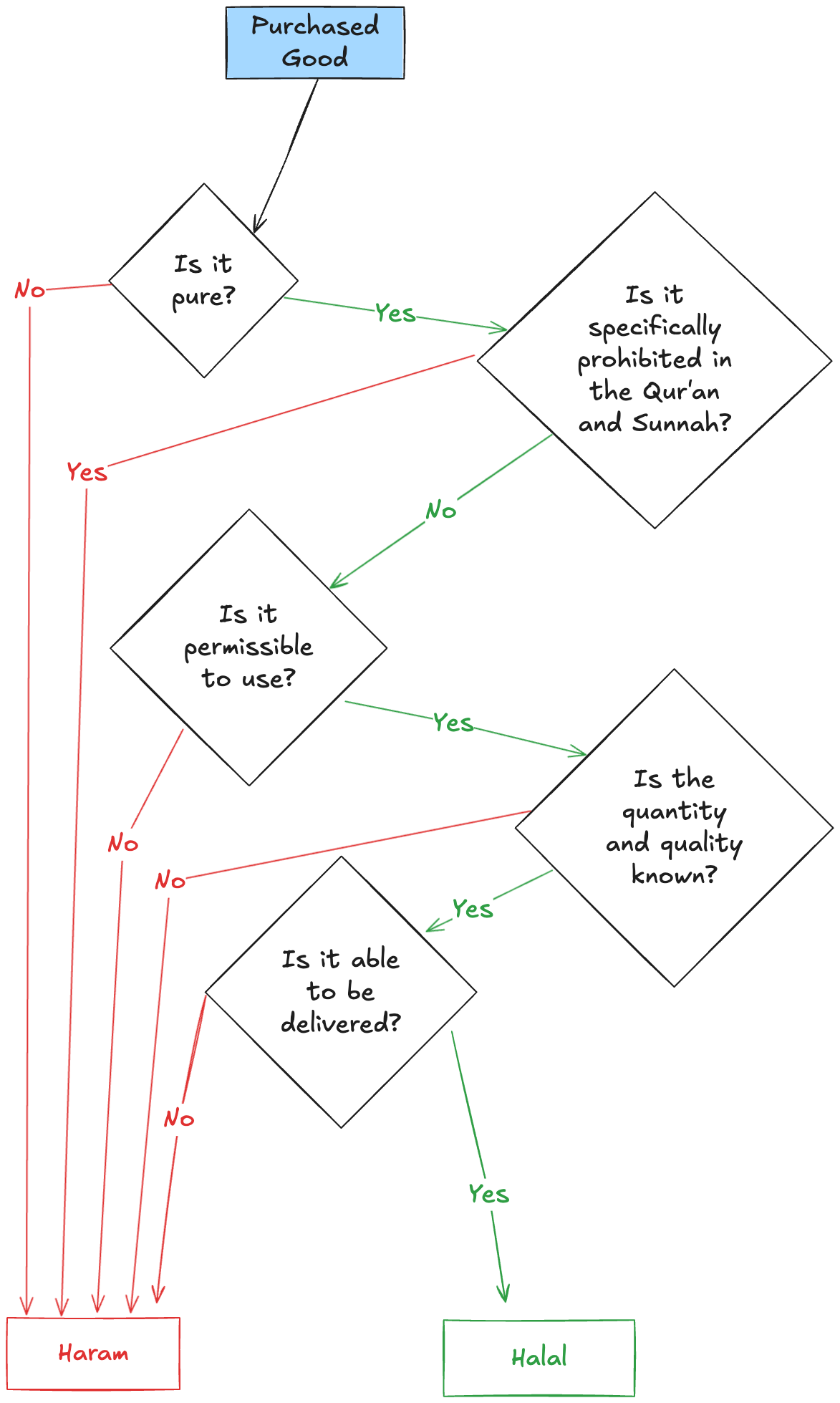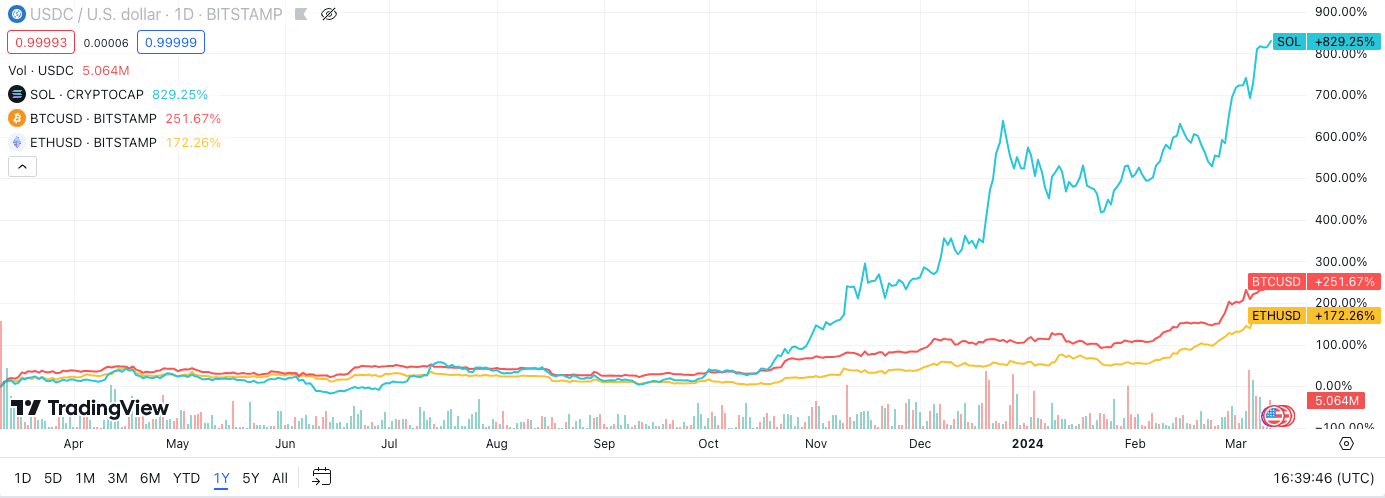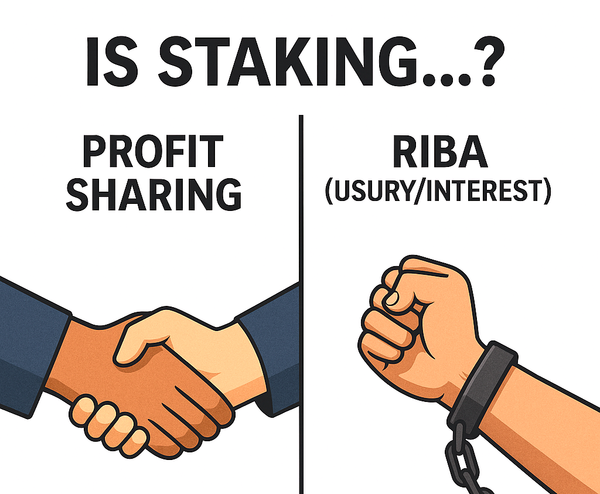Isn't Crypto Haram?
A 5 point checklist that can be used to assess whether any good - including crypto - is halal.
“You should buy this crypto token.”
“Isn’t crypto haram though?”
This is probably one of the most common questions that Muslims have when they hear about crypto. Even if they don’t ask it out loud, they often abstain from buying crypto because the question lingers in their mind.
People hear so many differing answers from so many respected scholars that they’re left even more confused than before they asked the question. Since I’ve had the chance to sit down with many scholars from Turkey to Algeria and ask this question to them point blank, I’d like to present one of the most concise answers I’ve heard to dispel doubts.

What Makes Something Permissible to Buy in Islam?
The shari’ah makes it very simple to determine whether something is permissible to purchase or not with a simple checklist of conditions. At a basic level, anyone can check the conditions to see if the product you’re buying is permissible to buy, whether it's a banana or a Bitcoin.
Here are the 5 Shariah conditions for a buying a good[1]:
- Purity: The good bought must be pure, meaning it's not something like blood or feces.[2]
- No specific prohibition from the shariah: The Quran, Sunnah or other legal sources have not specifically prohibited the buying & selling of this item, unlike dogs for example. It is prohibited to buy dogs according to many scholars.
- Permissible to use[3]: The item bought can be used according to the shari’ah unlike, for example, a guitar. Even though a guitar is pure in its components, like wood, metal strings, etc. and there is no specific narration prohibiting its purchase, the guitar itself is impermissible to use according to many and hence, impermissible to buy.
- Known quantitatively & qualitatively: The amount of goods bought and its key features should be known. For instance, one banana or 10 apples are known whereas “a bunch of bananas” is not known quantitatively and “10 fruits” is not known qualitatively.
- Able to be delivered: I cannot sell something I don’t own or can’t hand over to you like a balloon that just floated out of my hand.
Applying the 5 Conditions to Crypto
With this checklist of conditions in hand we can apply it directly to crypto tokens like Bitcoin, Ethereum and Solana:
- Purity: Crypto tokens are digital items so physically represented as just electricity and therefore pure.
- No specific prohibition: The Quran, Sunnah and other legal sources did not specifically prohibit crypto tokens.
- Permissible to use: It is permissible to hold things as a store of value (iddikār) so there’s at least one permissible use and benefit of crypto.
- Known quantitatively & qualitatively: When you buy a crypto token, you usually know the amount you are purchasing such as 1 Bitcoin or 6 Ether or 10 Solana. You also know exactly what token they are (Bitcoin, Ether, Solana, etc.)
- Able to be delivered: If a reputable exchange holds a crypto token in their wallet, they can deliver it.
✅ Therefore, many network-native tokens like BTC, ETH, SOL, and SUI meet the Shariah conditions in principle. Click here for a beginner-friendly guide on navigating crypto from an Islamic perspective.
🚫 But not all tokens are halal. Tokens that involve lending with interest (riba), or exist purely to facilitate haram financial activities, are impermissible. Even economic activities like staking with halal tokens like ETH or SOL could be haram.
But aren’t cryptocurrencies ‘currencies’?
This is a key point—and a nuanced one.
Shariah terms do not always correspond one-to-one with their financial world equivalents.
What is called “yield” for example may actually be interest (riba) when it comes to the shariah. What is called “leasing” could actually be loaning (qard). And finally what is called a “currency” may or may not have the attributes of currency (thamaniyyah) in the shari’ah.
That being said,
- Scholars differ on whether or not Bitcoin and other cryptos are currencies. One excellent summary of positions is by Mufti Faraz Adam.[4]
- A crypto token being a currency or not would not change whether or not it is permissible to purchase. Instead, being a currency would restrict how the token should be purchased. For example, if Bitcoin were a currency you could not swap 1 Bitcoin for 1.5 Bitcoin as that would be a usurious transaction. It would also effect zakat calculations and its payment methods.
Why should Muslims care?
From its inception in 2009, Bitcoin has been one of the best performing assets of all time. After Ethereum started in 2015 and Solana in 2020, they have grown at similarly unprecedented rates. By being late to the opportunity, ignoring scholarly experts who specialize in crypto, and waiting for everyone’s local imam to finally understand Bitcoin and issue a fatwa[5], Muslims risk being left behind and stuck in an impoverished and still riba-riddled system just as they were with the modern financial system.

Besides wealth generation, Muslims should be focused on cryptocurrency to help shape the trajectory of one of the most important technologies towards justice. The earliest artificial intelligence systems didn’t begin in 2022 with ChatGPT, but in the 1950s with the likes of Alan Turing who discovered state machines and the Turing Test. The iPhone didn’t come from nothing in 2007, but from the evolution of the personal computer and computing accessories which started in the 1960s with the likes of Douglas Englebart. Muslims still have relatively small influence on the trajectory of these fields because they were not present in their early days. Similarly, avoiding cryptocurrency technology in its nascent days while Silicon Valley, hedge funds, and even governments dive in headfirst can have long term negative effects. Diving in cautiously in the early days can have long term positive effects.
I hope & pray for the later inshAllah.
Footnotes:
As noted by the 18th century Egyptian scholar Muhammad Al-Basshār in Ashal ul-Masālik, though they can be found similarly in many other texts as well. ↩︎
These examples as well as many others in this article have some exceptions and differences of opinion. They are just examples and the principles still stand. ↩︎
Some scholars see this condition as “permissible to benefit” and have conditions on what counts as benefit. ↩︎
https://darulfiqh.com/shariah-interpretations-of-bitcoin/ ↩︎
No disrespect to local imams. The amount of work they already have to do and issues they have to deal with is immense. Hopefully, this article relieves some of it. ↩︎





